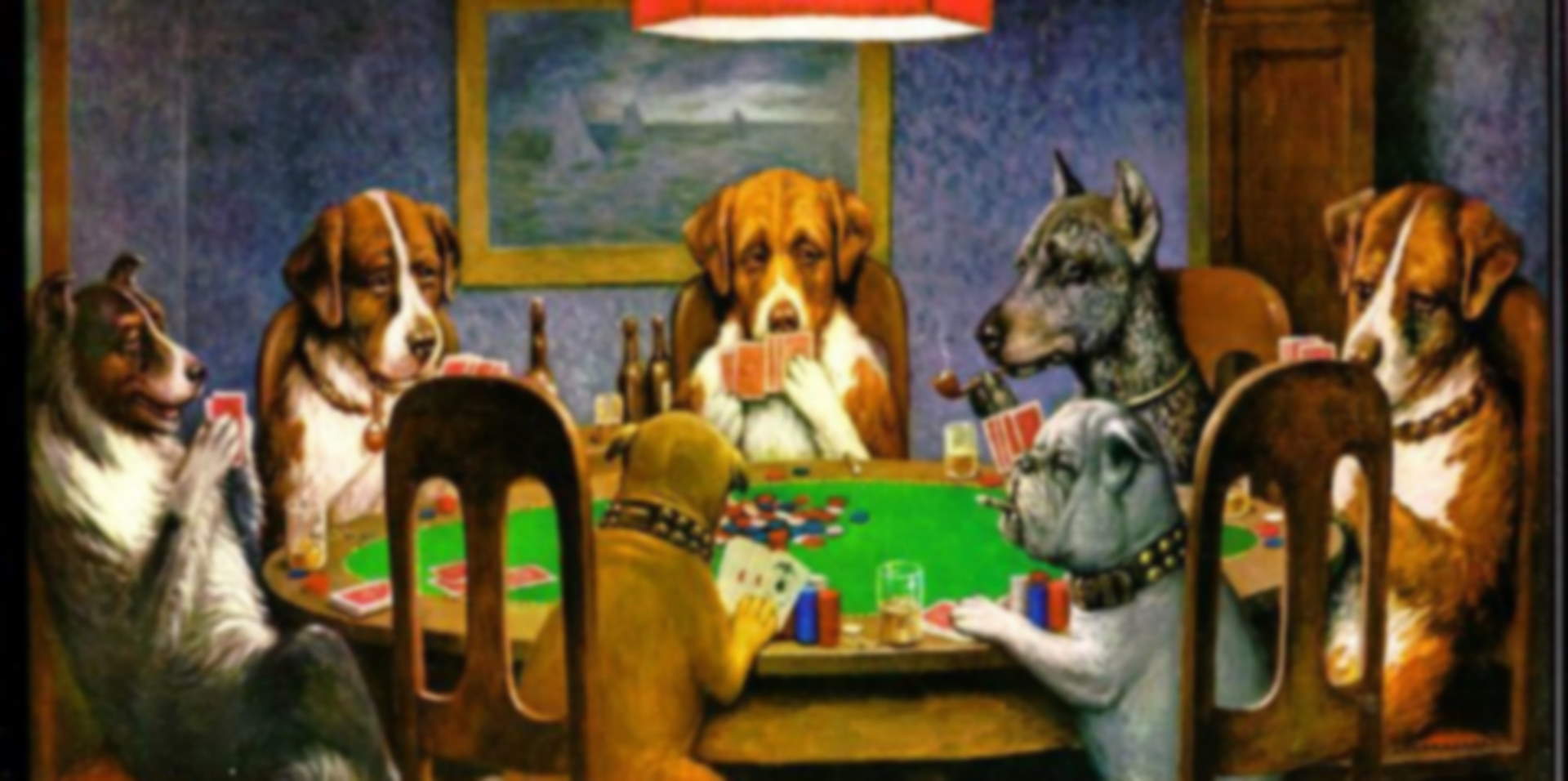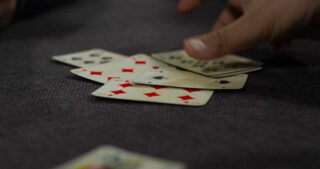/ 
Janis Joplin once sang, “freedom is just another word for – nothing left to lose.” What the 1969 song lyric meant was that it’s far easier to be daring and take chances when there is not so much at stake. Jon Friedberg, winner of the $1,000 buy-in No-Limit Hold’em championship certainly understands this. He won the second-largest live poker tournament in history at the 2006 World Series of Poker, presented by Milwaukee’s Best Light.Friedberg overcame a field of 2,891 players to win over half-a-million dollars in prize money. Only the main event of the 2005 WSOP attracted more entries. A whopping 270 players finished in-the-money.
Friedberg, who won his first-ever gold bracelet, is a 31-year-old MBA graduate from Pepperdine University. He is a businessman and investor with a number of ongoing start-up ventures. Freidberg lives in Las Vegas.
It took two very long days to eliminate 2,882 participants. That left the final nine players, who returned for Day Three. When the final table started, Michael Pomeroy looked to be the player to beat. He enjoyed a sizable chip advantage. In fact, Pomeroy possessed one-third of the total chips in play. Only one former gold bracelet winner was present—two-time champion Humberto Brenes. He won two WSOP titles in 1993, for Pot-Limit Omaha and Limit Hold’em.
| Name | Chip Count | Seat # |
| John Phan | $747,000 | 1 |
| Michael Pomeroy | $1,325,000 | 2 |
| Humberto Brenes | $564,000 | 3 |
| Tom Hawkingberry | $675,000 | 4 |
| Corey Chaston | $229,000 | 5 |
| Mike Halford | $89,000 | 6 |
| Kevin O’Donnell | $222,000 | 7 |
| Jon Friedberg | $189,000 | 8 |
| Thang T. Luu | $314,000 | 9 |
About 15 minutes into play, Thang T. Luu lost most of his chips with ace-jack against pocket kings, and then was eliminated a few hands later. Luu, born in Vietnam and now living in Las Vegas, received $49,722.
Mike Halford went out on the very next hand. He was pot-committed with jack-seven when the flop came Q-7-6 and actually had the best hand against John Phan’s flush draw. However, a heart fell on the river making the flush, which busted Halford. The Las Vegas poker pro now has 2nd, 5th, 8th, and 10th-place finishes at the WSOP over the last two decades. He collected $61,561.
Costa Rican superstar Humberto Brenes’ bid for his first gold bracelet in 13 years was dashed when Mike Pomeroy spiked a queen holding ace-queen versus Brenes’ ace-king. Brenes, who owns several businesses in Central America and also has 41 cashes in his illustrious WSOP career, said adios and was paid $74,715 for seventh place.
Next, Canadian poker player Corey Chasten went out in a three-way pot won by Kevin O’Donnell. Chaston received $88,132 as the sixth-place finisher.
When play became five-handed, Mike Pomeroy increased his chip lead to 2 to 1 and had about half of the chips in play. Kevin O’Donnell was not so fortunate. Fresh off winning the big pot which eliminated Chasten, O’Donnell flopped top pair holding ace-jack. But Jon Friedberg hit a third eight on the river to make three-of-a-kind, which broke O’Donnell. He earned $105,232.
Jon Friedberg started making his move when play was at four-handed. He narrowed the gap with the chip-leader Pomeroy, who busted the next player from the tournament. Tom Hawkingberry, who works as a compressed gas plant operator, exploded when his ace-four was dominated by Pomeroy’s ace-jack. Pomeroy made a gratuitous flush, putting Hawkingberry out in fourth place. He earned $122,596.
Which now brings us to singer Janis Joplin’s poker tournament strategy. In a post-tournament interview which occurred two hours later, Friedberg made an acute observation that summarized his reasons for success. He explained that it is sometimes easier to play a small stack than a big one. “I prefer to come into a tournament as a shorter stack than a big stack,” Friedberg said. “As odd as that sounds, when I am a short stack I feel like I have nothing to lose. But when I come in as a tall stack I am scared to lose my chips and it affects my game. To me, there are definite advantages to coming in with the short stack and I know it is uphill from there. I am willing to gamble, take chances, and play my game—more so than if I have chips.”
Friedberg’s strategy proved effective. He pushed John Phan out of a few big pots and, in at least one sense, became the victim of his own success. Friedberg seized the chip lead and then annihilated the player who had dominated the final table up to that point. Mike Pomeroy lost all of his chips with queen-three against Friedberg’s pocket fives. Pomeroy caught a queen, but Pomeroy caught a five (making a set), which wrecked Pomeroy’s dreams of victory. Michael Pomeroy, an auto worker from Detroit, raced off with $157,322.
When heads-up play began, Friedberg enjoyed a 4 to 1 chip lead. Later, Friedberg reflected back on his feelings when initially faced with the prospect of playing against John Phan heads-up for the gold bracelet. “I think I needed a 4 to 1 chip lead to beat John. He is one of the very best players in the world. I’ll be honest—I was scared to death to play him heads-up and even at 4 to1, I was scared to play against him.”
The fear certainly did not show. Phan was never seriously able to threaten Friedberg’s chip lead. About 90 minutes into heads-up play, the final hand of the night was dealt when Phan tried to make a pre-flop steal holding the less-than-desirable queen-four suited. Friedberg called the all-in move holding ace-seven suited. The final board showed 10-9-3-2-7, giving Friedberg a pair of sevens and his first WSOP victory.
As the runner up, John “The Razor” Phan received $289,389 in prize money. He was visibly disappointed with the outcome. “I have to try and keep my head up,” Phan said. “There is always tomorrow in poker. I’ll be back tomorrow.”
Friedberg agreed that he had dodged a bullet by not having to confront Phan from a competitive disadvantage. “(Phan) was the single most feared opponent I had at this table,” Friedberg said. “John is not going to be happy when he sees the (ESPN) television footage of me when I pushed him off some key hands. John is a great player and I feel very fortunate to have come out on top tonight.”
“I started off here on the final table eighth (in the chip count) out of nine players. I had a key double-up hand early. Then, I had a couple of very lucky suck outs and got some chips and was able to win. Every poker player’s dream is to win a World Series of Poker gold bracelet. I came here, and now did it. I really can’t believe it.”
Writer’s Note: 1969’s “Me and Bobby McGee” was actually written by Kris Kristofferson, but it was popularized by Janis Jopin.
Dieser Artikel erschien auf PokerOlymp am 18.04.2007.


